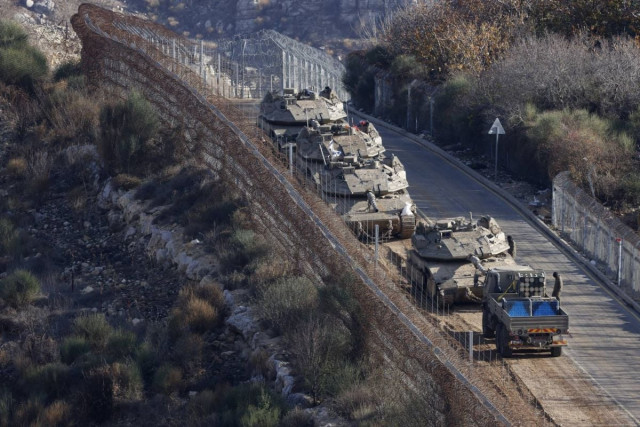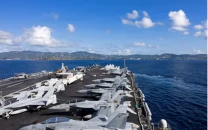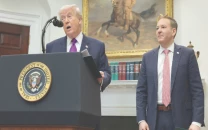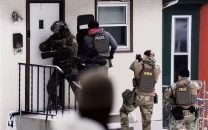Israeli takeover of Syrian border buffer zone 'temporary': FM Gideon Saar
PM Netanyahu announced he had ordered the army to “take control” of the zone after fall of Syria's Bashar Al-Assad

Israel’s Foreign Minister Gideon Saar said on Monday that his country’s military takeover of the buffer zone along its border with Syria was a temporary move, after rebels took control in Syria.
“This is a limited and temporary step we took for security reasons,” Saar said in a press conference at the foreign ministry in Jerusalem.
Israeli Prime Minister Benjamin Netanyahu announced on Sunday that he had ordered the army to “take control” of the zone – on the east of the Israeli-annexed Golan – after the fall of Syrian president Bashar Al-Assad the same day.
Saar and an Israeli government spokesman both confirmed that Israeli troops had moved beyond the demarcated buffer zone onto the slopes of Mount Hermon.
The United Nations-monitored buffer was intended to keep Israeli and Syrian troops apart on the Golan Heights after the 1973 Arab-Israeli war.
Asked if Israeli troops had moved beyond the buffer zone, Saar said “there can be one point which legally is a different definition,” but that every area seized was done “from the point of view of keeping our security”.
On Sunday, the Syrian Observatory for Human Rights, a Britain-based war monitor, said that Israeli forces had taken over Syrian army positions in parts of Mount Hermon beyond the buffer zone.
Netanyahu said on Sunday that Israel considered the 1974 agreement establishing the buffer to be void after the Syrian army withdrew from its positions.
Israel has occupied most of the Heights since conquering them in 1967. It later annexed that area in a move unrecognised by most of the international community.
Saar said Israel did not control the entirety of the buffer zone, which is more than 80 kilometres (50 miles) long and less than 10 kilometres across at its widest point.
Government spokesman David Mencer, asked at a press briefing about the area on Hermon, confirmed Israeli troops had been ordered to take it.
He said it was to ensure “no hostile forces, or Hezbollah, embed themselves right next to the border of Israel”, which reached a fragile ceasefire with Lebanon’s Iran-backed Hezbollah group on November 27 after more than a year of conflict.
The Syrian rebels began their lighting advance that same day.


















COMMENTS
Comments are moderated and generally will be posted if they are on-topic and not abusive.
For more information, please see our Comments FAQ